Search Results
Showing results 1 to 20 of 29
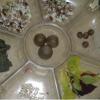
Glove Gardens
Source Institutions
In this activity, learners create a garden in a disposable glove. They learn about the conditions necessary to make the seeds sprout and actively participate in caring for their plants.
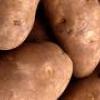
Growing Cooties
Source Institutions
In this health activity (located on page 4 of the PDF), learners will discover the importance of hand washing by observing mold growing on potatoes.
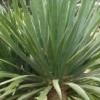
How Plants Grow
Source Institutions
In this biology activity (page 3 of the PDF), learners will explore how plants turn sunlight into food through a process called photosynthesis.
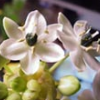
Film Canister Farming
Source Institutions
In this hands-on botany activity, learners sprout vegetables in film canisters.
Growing Plants: Track Their Growth
Source Institutions
In this activity, learners will be working with predictions with a time frame of one week, or longer. Start by planting seedlings.
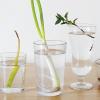
Vegetable Revival
Source Institutions
In this activity, learners use food scraps from the kitchen to grow new vegetables.
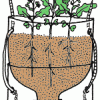
TerrAqua Investigation Column: What is the Land-Water Connection?
Source Institutions
In this investigation, learners plant seeds in a 2-liter bottle filled with soil that is connected to a water source below. Over the next few weeks, learners observe how the plants grow.
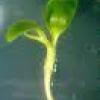
Mighty Seeds
Source Institutions
In this biology experiment, learners plant soybean seeds in plaster of Paris, witnessing firsthand the mighty power and ability of plants to grow in adverse conditions.
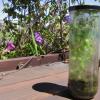
The Self-Watering Terrarium
Source Institutions
In this biology/ecology activity, learners construct a terrarium out of a tennis ball container. This terrarium is unique because it never has to be watered.
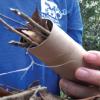
Discovery Time: Bugs
Source Institutions
In this activity, young learners (2 years and up) explore the world of insects and other "bugs" by Making a "bug hotel" with recycled objects.
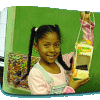
Feed the Birds
Source Institutions
Learners construct a bird feeder from re-used materials. After hanging their feeder, they keep a journal about what birds visit the feeder.
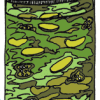
Kimchee Fermentation Chamber
Source Institutions
Learners make kimchee or sauerkraut, which is really just fermented cabbage, in a 2-liter plastic bottle.
Sock Garden
Source Institutions
In this activity (located in the middle of the page), learners start a garden by planting their socks!
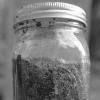
Rip It Up And Start Again - Composting
Source Institutions
In this activity, learners will experiment to find how long it takes to compost paper. They will create their own compost container and test different variables.
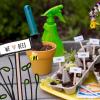
Egg Carton Nursery
Source Institutions
In this activity, young learners will make their own flower seed nursery in an egg carton.
Butterflies in Space
Source Institutions
The Butterflies in Space Teacher's Guide uses "life in space" to encourage learners to conduct their own open-ended scientific investigations.
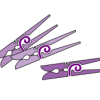
Good Stress
Source Institutions
In this activity about physical stress (page 28 of PDF), learners discover that muscles and bones need to work to stay strong.
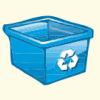
2-Liter Landfill
Source Institutions
In this activity, learners gain a better understanding of how household/school waste breaks down in a landfill. Learners collect trash and then create miniature landfills in 2-liter bottles.

Zoo Calendar
Source Institutions
Use the Zoo Calendar (page 1 of PDF) to involve learners in interdisciplinary, whole language, and writing activities about ecological concepts.
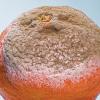
Why Does Food Spoil?
Source Institutions
In this activity, learners will conduct an experiment to discover methods of reventing foot mold growth on food.
